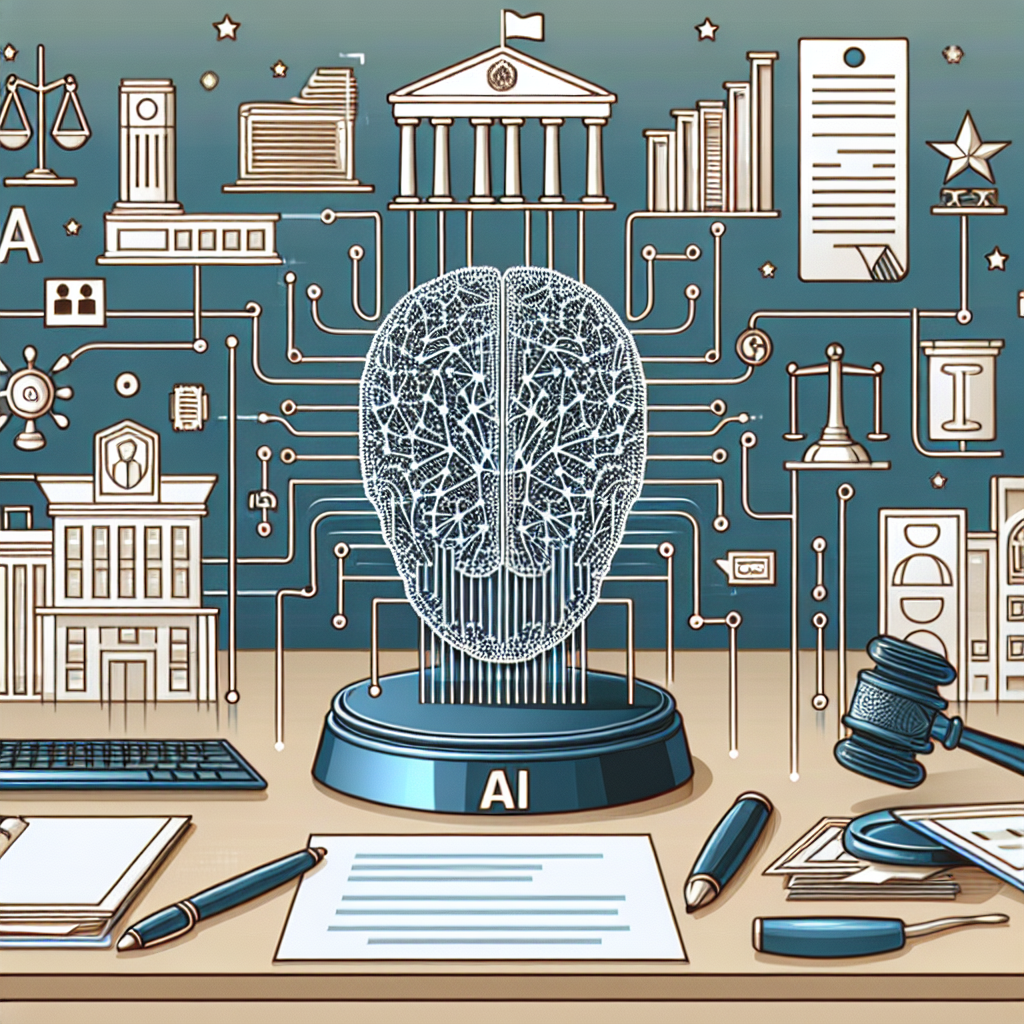The Impact of AI on Governance and Policy Making
Artificial Intelligence (AI) has become an increasingly powerful tool in various sectors, including governance and policy making. AI technologies have the potential to revolutionize how governments operate, make decisions, and formulate policies. From enhancing efficiency and accuracy to improving transparency and accountability, AI is transforming the way governments around the world manage their affairs.
Impact on Governance
One of the key impacts of AI on governance is the automation of routine tasks. AI systems can be used to streamline administrative processes, such as data entry, document processing, and customer service. By automating these tasks, governments can free up valuable resources and personnel to focus on more strategic and high-value activities.
AI can also help governments improve decision-making by analyzing vast amounts of data quickly and accurately. AI algorithms can extract insights from complex datasets, identify patterns and trends, and make predictions based on historical data. This can help policymakers make more informed and evidence-based decisions, leading to better outcomes for citizens.
Furthermore, AI can enhance the delivery of public services by personalizing services and tailoring them to individual needs. For example, AI-powered chatbots can provide instant assistance to citizens, answer their queries, and guide them through government services. This can improve the overall user experience and increase citizen satisfaction with government services.
Impact on Policy Making
AI is also transforming the way policies are formulated and implemented. AI technologies can help policymakers analyze the impact of existing policies, simulate different scenarios, and predict the outcomes of proposed policy changes. This can enable governments to make more informed decisions and develop policies that are more effective and efficient.
Moreover, AI can help governments monitor and evaluate the impact of policies in real-time. By analyzing data from various sources, AI systems can track the progress of policy implementation, identify bottlenecks and challenges, and suggest potential solutions. This can help governments adapt their policies quickly and address emerging issues before they escalate.
AI can also enhance the transparency and accountability of policy making processes. By using AI algorithms to analyze public feedback, social media data, and other sources of information, governments can gain a better understanding of citizens’ needs and preferences. This can help policymakers develop policies that are more responsive to the needs of the public and increase trust in government institutions.
Challenges and Considerations
While AI offers numerous benefits for governance and policy making, it also presents certain challenges and considerations that need to be addressed. One of the key challenges is the ethical and legal implications of using AI in decision-making processes. AI algorithms are not immune to biases and can produce discriminatory outcomes if not properly designed and monitored.
Another challenge is the potential impact of AI on the workforce. As AI technologies automate routine tasks, there is a risk of job displacement for certain roles. Governments need to develop policies and strategies to reskill and upskill their workforce to adapt to the changing landscape of work.
Furthermore, there are concerns about data privacy and security when using AI in governance and policy making. Governments need to ensure that the data used by AI systems is collected, stored, and used in a responsible and secure manner to protect citizens’ privacy and prevent misuse of data.
FAQs
Q: Can AI replace human decision-making in governance and policy making?
A: While AI can enhance decision-making processes by providing insights and predictions based on data analysis, human judgment and oversight are still essential in governance and policy making. AI should be used as a tool to support human decision-making, rather than replacing it entirely.
Q: How can governments ensure that AI systems are transparent and accountable?
A: Governments can promote transparency and accountability in AI systems by using explainable AI algorithms that provide insights into how decisions are made. They can also establish clear guidelines and regulations for the use of AI in governance and policy making to ensure ethical and responsible use of AI technologies.
Q: What role can citizens play in shaping AI governance and policy making?
A: Citizens can play a crucial role in shaping AI governance and policy making by providing feedback, raising concerns, and participating in public consultations. Governments should engage with citizens and involve them in the decision-making process to ensure that AI technologies are used in ways that benefit society as a whole.
In conclusion, AI has the potential to transform governance and policy making by enhancing efficiency, accuracy, transparency, and accountability. Governments around the world are increasingly adopting AI technologies to streamline administrative processes, improve decision-making, and deliver better public services. While AI presents certain challenges and considerations, the benefits of using AI in governance and policy making far outweigh the risks. By embracing AI technologies responsibly and ethically, governments can harness the power of AI to create more effective and responsive policies that address the needs of citizens and drive positive societal change.

